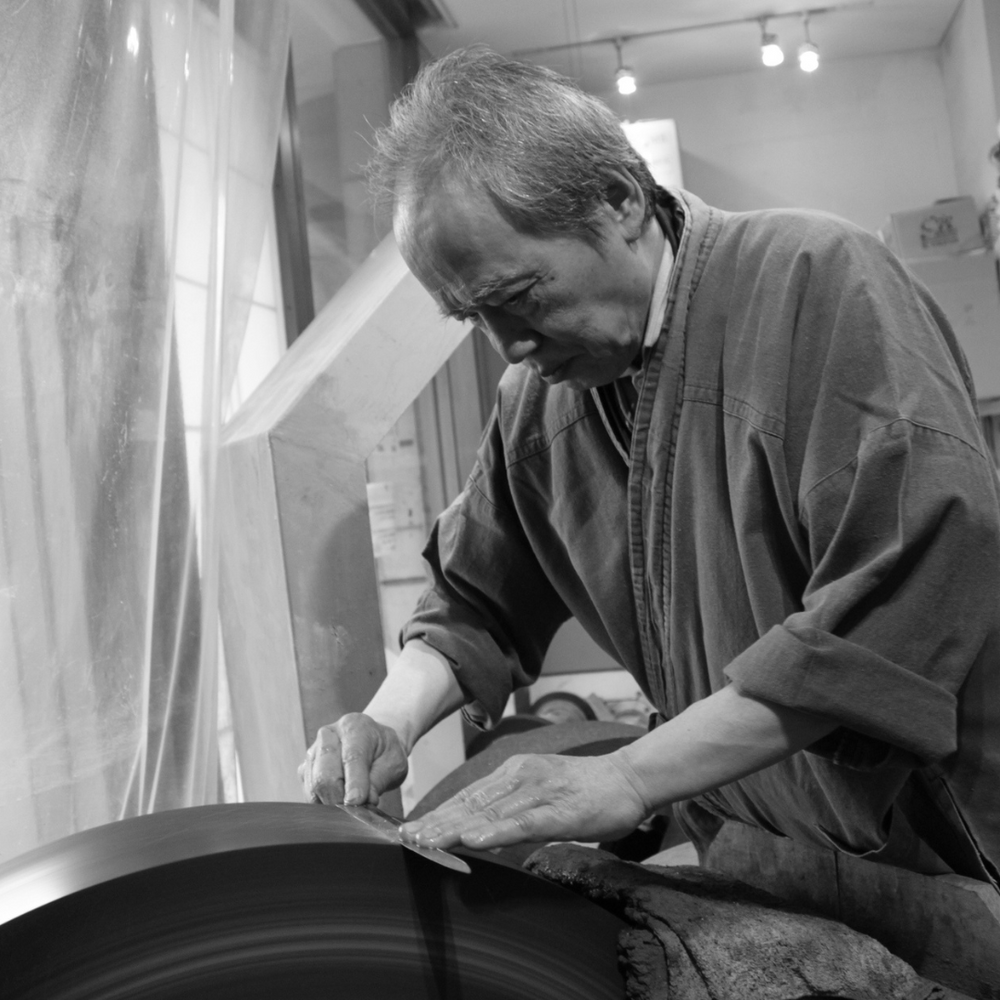Santoku
Santoku multipurpose knife Migaki 180 mm
Santoku multipurpose knife Migaki 180 mmRef. {{ sku }}: Ref. 512
Low stock
Description
The Santoku, or "three virtues" in Japanese, is the essential Japanese knife because it is versatile. It can be used for general purposes: slicing, chiseling, and mincing meat, fish, and vegetables. Its use is similar to that of the Bunka knife, which, however, has a broken angle.
Double-bevel knives are knives with a blade sharpened on both sides. This type of knife is used in Europe. The double-bevel knives in our catalog are the perfect combination of double bevel and traditional Japanese blade. The blade allows for clean and precise cutting.
INTERVIEW
The material used for the blades is a mixture of iron and'steel. This means that'Special maintenance is necessary to keep the blades in good condition, in particular to prevent them from'They rust. The blades must therefore be thoroughly dried after use. They must also be sharpened with water stones, available for sale on our website.
COMPOSITION
- White steel
DIMENSIONS
Blade length: 180 mm


Tahara Shunichi
For over 50 years, Tahara Shunichi sharpens and assembles hand-forged knives by Sakai artisans, in the Osaka metropolitan area, a historic city of cutlery. Master of traditional craftsmanship recognized by the Japanese government and Osaka Prefecture, his sensitivity and unique know-how guide him in the design of tools of exceptional quality. Secluded in his small workshop filled with machines, some of which he designed himself, Mr. Tahara single-handedly sharpens a very varied range of knives intended for all types of use: the single-bevel yanagiba for cutting slices of sashimi without crushing the flesh, the deba for lifting fish fillets, the nakiri with its wide blade for slicing and removing food, the versatile gyuto or the petty, reminiscent of the European paring knife.























